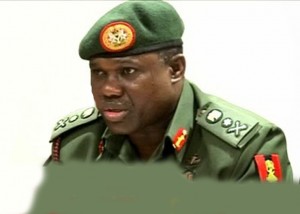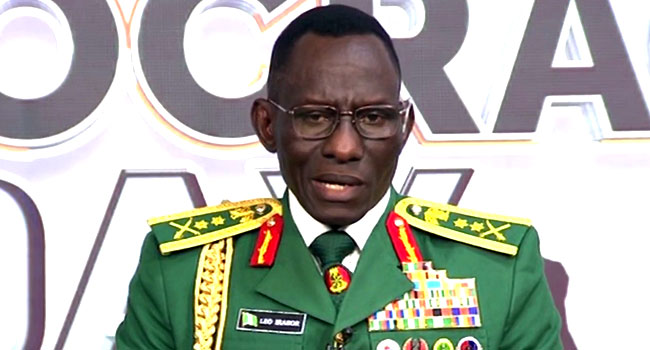
The Chief of Army Staff, Lt General Kenneth Minimah who gave the advice at the graduation ceremony of Warrant Officers Course 24 held at the Nigerian Army School of Infantry, Jaji, Kaduna State, tasked the officers to create new strategies and tactics that can assist the army and the country in general to tackle the security challenges currently confronting the nation.
He identified warrant officers as important organs in maintaining cohesion in the army and also strengthens the linkage between officers and soldiers.
Addressing the 54 graduands, the army chief cautioned them to be loyal to all constituted authorities and the civilian populace while discharging their duties, as well as making proper use of the intellectual and professional skills they acquired during their training.
On his part, the Commandant of Warrant Officers Academy, Brigadier General Martins Abraham, said the training was reviewed to give due emphasis to the contemporary challenges of internal security, asymmetric warfare and peace support operations the Nigerian Army currently faces.
He however explained that the academy is faced with numerous training challenges that are affecting it to effectively discharge its obligations.
The Warrant Officers Academy was established to train warrant officers so as to bridge the gap in professional and intellectual competence between officers and soldiers of the Nigerian Army.
The graduating officers commenced training on 10th January 2014 with 4 warrant officers, 20 staff sergeants and 30 sergeants, drawn from all arms and services of the Nigerian Army.
Accordingly, the curriculum has been designed in such a way to prepare the warrant officers for management and leadership responsibilities at junior levels, and also enhance their professional competence and career prospects.
The graduands were exposed to unit administration in peace and war time, unit regimentation, management of men and their families in the unit and junior leadership and drill.





